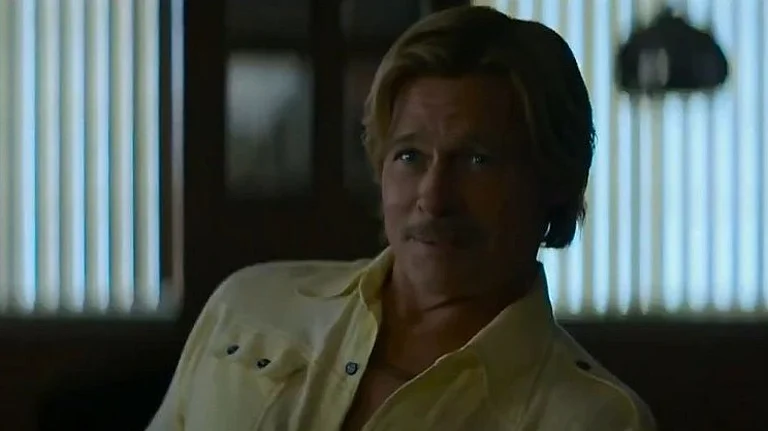IT'S still not outright victory for UN secretary-general Kofi Annan. Despite his prediction that his agreement with Iraqi president Saddam Hussein about future UN weapons inspections will win unanimous support from the Security Council, US officials remain unconvinced. The Clinton administration is publicly describing the pact in generally optimistic, if cautious, terms; but, in private, there is clearly expressed anxiety.
After hearing a detailed explanation from Annan, the Americans still have many unanswered questions about whether the accord provides an effective means of finding Iraq's prohibited weapons systems. A senior US official said the Clinton administration is especially concerned about how much control the UN Special Commission (UNSCOM), charged with eliminating mass destruction weapons, will retain over inspections of eight complexes that Baghdad claims are essential to its national security.
The deal negotiated by Annan in Baghdad calls for giving the authority to conduct inspections at the eight so-called presidential sites to a new special group composed of UNSCOM personnel and senior diplomats, probably chosen from the five permanent Security Council members. The US fears this new entity might be more susceptible than UNSCOM to outside political pressures.
However, Annan's descriptions of UNSCOM's revised role seem to fall short of past US insistence that it must have the central responsibility in any future inspection activity, and one official said that Annan thus far has not defined UNSCOM's duties within the new group more specifically. Annan has said he believes he can work out any differences over the role of UNSCOM through personal discussion with Richard Butler, UNSCOM's chairman. But UN sources said Annan's sympathetic responses to Iraqi complaints about UNSCOM inspectors allegedly being disrespectful of Iraq's sovereignty,dignity and national security have caused resentment among UNSCOM personnel.
Pursuing a theme he first sounded in Baghdad, Annan said in New York that UNSCOM staff members "have to handle Iraq and the Iraqis with a certain respect and dignity and not push our weight around and cause tensions". The sources said during the closed meeting he went further, saying some UNSCOM staff members were 'cowboys' who sometimes had behaved irresponsibly while pursuing their duties within Iraq.
Annan reportedly believes these problems can be dealt with by appointing a political representative to Iraq and is expected to give the job to Lakhdar Brahimi, a former Algerian foreign minister.
AN important unanswered questions for the US involves the wording of the agreement, reiterating the commitment of all UN countries "to respect the sovereignty and territory integrity of Iraq". The US wants assurances that Iraq will not use this provision as a pretext for impeding future inspections, but Annan has not provided what Washington regards as satisfactory answers, officials note. Until the US is satisfied on these points, the Security Council is unlikely to move to approve the agreement.
US Ambassador to the UN Bill Richardson said the administration wants a "quick test" of Iraq's good faith by beginning inspections of the disputed sites very soon. Diplomats at the UN believe the US wants a resolution that will automatically declare Iraq in breach of the agreement if it resumes its obstructive tactics and open the way to US military action without further delay.
US Secretary of State Madeleine K. Albright reiterated that the US wants to test Iraqi compliance and will insist that technical inspectors rather than diplomats remain in control of the inspection process. The US will "continue to back diplomacy with force," she said. "If Iraq interferes with the inspections or tries to undermine UNSCOM's efforts, we will act firmly, forcefully and without delay. We will not allow Saddam Hussein to take us from crisis to crisis."
It is clear that Annan's deal does not comply with at least one of the guidelines he was given by the five permanent members of the Security Council before setting out for Baghdad. That specified that the new inspection group should have jurisdiction only over presidential residence in Iraq, not surrounding buildings. The idea was to avoid usurping too much inspection authority from the existing commission.
But Annan told the Security Council that he did not follow this guideline because a special UN survey had revealed that Iraq really only has a single presidential residence, located in Baghdad, and that Iraq considers many other sites and buildings associated with guesthouses elsewhere in the country just as sensitive.
Annan's deal also violated a second guideline he was given by the Security Council's permanent members: that the special group should be clearly under the operational control of the existing inspection commission and its chairman, Richard Butler. Instead, the deal handed the authority to pick the membership and chairman of the new inspection group to Annan. It also made the new group responsible for writing its own reports, which would then be passed along to the Security Council by Butler. Some US officials and supporters of the existing commission said they were worried about this arrangement because of Annan's open sympathy for some of Iraq's criticisms of the commission's past activities.
"There are several ambiguities. The proof will come in the course of time," said a senior US official, who sought to play down the importance of the text of the deal. "This isn't about a piece of paper. You have to wait and watch what happens during the inspections." Another official said: "What we are looking for is how he (Saddam) implements this agreement." So is the the rest of the world.

























